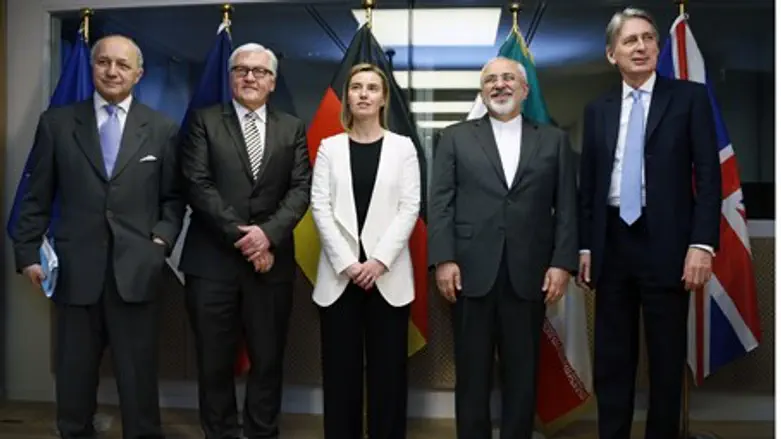
European relations with Israel are more mixed than negative these days. There is a widening perception among Israeli and American observers that Israel's ties with Europe are far less strained than people believe, while at the same time Israeli-American relations are the ones seeing unprecedented lows.
Yet while there was rage directed to toward Netanyahu for his Congressional speech last month, European reaction to Israel's blunt opposition has not been anywhere near as bitter.
“To be honest it was only the Democrats in the US where the reaction was strong,” suggests Azriel Bermant of the Institute of National Security Studies. “I wasn’t aware of a particular reaction among European countries.”
This is a critical point to digest for policy makers and analysts. The fallout over Netanyahu’s perceived interference in the Iran talks was largely aimed at the United States. The reasons for why Netanyahu targeted America in particular might vary from the larger public base of support for Israel to the traditional bipartisan platform the Prime Minister would receive in Congress, but the suggestion the United States is more aggressively advocating for the deal could be behind it.
“The Obama Administration is the senior partner (in the negotiations) and it appears they have been pushing harder than any other party (for an agreement). Other parties, particularly Germany, want it to happen now but the Obama Administration is pushing the strongest.”
European capitals are by extension more hesitant than Washington to sign off on an agreement, though that does not mean they are not trying to reach one. Even Paris, which has received the bulk of the attention in recent weeks, is likely to fall into place by the end of the negotiations.
“Fabius has been a strong critic. There could be various reasons France might be hesitating but it could be they want to exert their clout and make their voice heard.”
“Again, unless there is a major problem, I feel that they will fall into line.”
There is also a sometimes the perception that Israel’s policies regarding the Palestinians could be impacting their role in the Iran talks. But Bermant does not see that way, and the Europeans do not wish to either.
“I don’t think the two issues are brought together. European countries in general are unhappy about the position of Israel on a Palestinian state and settlements, but the Iran issue is considered separate. They want to distance them from a bomb and in their view reaching an agreement is better than using force.”
There should be no illusion that how Israel shapes its policies on things like two states might affect the Iran negotiations in anyway. It is not as if Europe “would suddenly take a harder stance on Iran” if Israel were to completely turn its policies on settlements or attitudes to a Palestinian state around.
Bermant is also not as concerned about intelligence cooperation. He dismisses the importance of intelligence sharing regarding the negotiations, at least on the grounds that it is only one matter of policy. Even now, “generally speaking cooperation is very good.”
The talks have come at an awkward time in Iran’s ties with Western countries. They find themselves on the same side when it comes to fighting ISIS, but clearly have divergent interests at the nuclear negotiations as well as on Iran’s increasing aggressiveness in the Middle East. Bermant does not see any sort of secret understandings between the two sides regarding a cooperative fight against ISIS being part of these negotiations.
Yet, Bermant does admit that the entire situation is odd.
“In my personal view, it’s strange on the one hand that the US is so close to the Kingdom of Saudi Arabia on Iran's influence in Yemen, yet other other hand the United States and Europeans are helping strengthen Iran's international standing on the nuclear deal.”
“To me it all seems very strange and does not make a lot of sense.”
Bermant feels that the negotiations are not wide enough in their scope. The Iranians’ ballistic missile programs is far too important in his view to be ignored by the talks.
“They haven’t answered all the International Atomic Energy Agency’s (IAEA) questions – will these be dealt with before an agreement?”
If talks are going to happen about Iran’s development of weapons programs, especially weapons of mass destruction, Bermant thinks there needs to be more demand to put these issues on the table.
“Iran is still free to work on its ballistic missiles and advancing the range of those missiles. Iran will not discuss that. The missiles could reach Middle East countries in the immediate term, but later on it could be a concern to European countries and beyond.”
